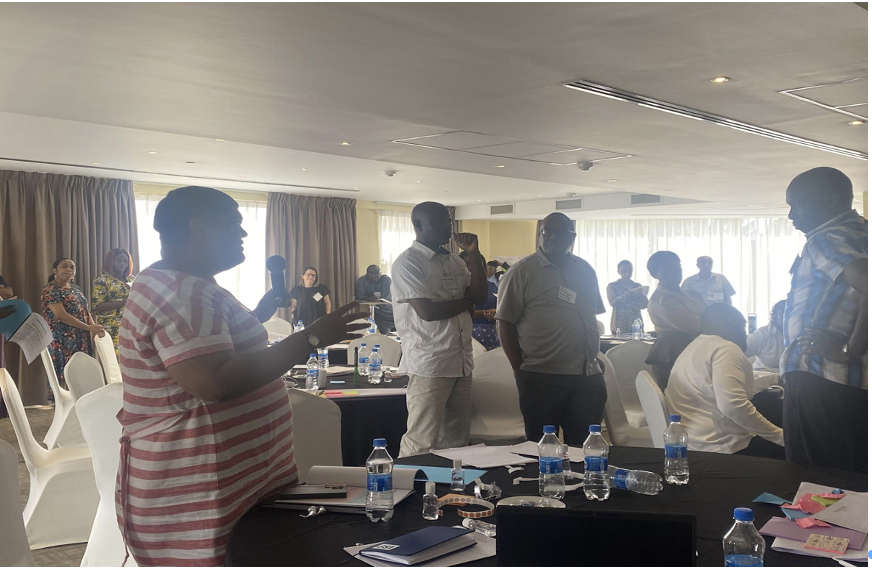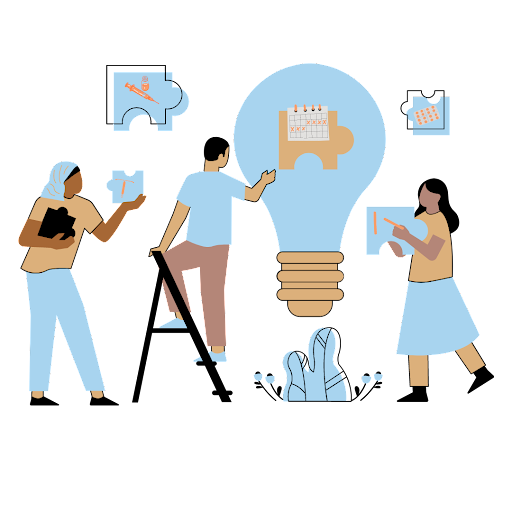Learning Circles alumni are taking the technical insights gained from group discussions and applying them back home in their own work.
For example, Djikolmbaye surpassed his goal by training 15 youth leaders and advocacy officers at civil society organizations in Chad on strategies for mobilizing domestic resources instead of 10, as anticipated. He chose to focus on civil society organizations as he considers them key agents for behavior change within communities.
“These leaders facilitate the implementation of public health policies,” he said. “Not involving community leaders in development policies is the main cause of program failures.”
Actions like Djikolmbaye’s are largely driven by individual commitment statements, which participants develop in the final session of their Learning Circle. Commitment statements describe an immediate next step to address an individual challenge. The action is meant to be something within their control (in terms of time, resources, and power), and should amplify what has already been successful in the area, while avoiding past mistakes.
One commitment statement involved advocating with medical center authorities to source single-dose COVID-19 vaccines, removing the challenge of following-up with patients for their second dose of a vaccine.
A Learning Circles participant from Mali later reported: “[We’ve begun] discussions with the health authorities in the northern region to select and order single-dose vaccines for the next COVID-19 vaccination campaign, and discussions with the chief medical officer of one district to incorporate the COVID-19 vaccine into routine vaccination during weekly [routine vaccination] days.”









